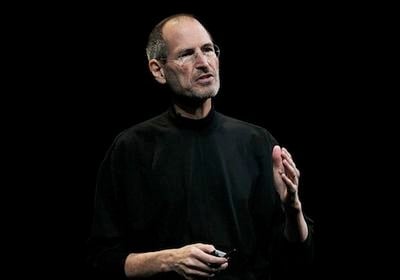Apple, Google and two other large technology companies should not be allowed to block evidence in an upcoming trial involving their participation in "no solicitation" agreements that date back to 2005. This request to expand the evidence presented in the trial was filed on behalf of tech workers who initiated the class action lawsuit in 2011, reports Reuters.

In this latest filing, the tech workers argue that all evidence pertaining to the companies involved, including the "bullying" personality of Steve Jobs, the personal wealth of Google co-founder Sergey Brin and other information gleaned from outside sources should be included in the case.
"That the jury might draw conclusions about Mr. Jobs' character based on evidence showing the manner in which he pursued the conspiracy at the heart of this case is not grounds to exclude such evidence," they wrote.
Additionally, the plaintiffs seek to introduce evidence about the personal wealth of executives like Google co-founder Sergey Brin - and how it could be enhanced by holding down workers' salaries and boosting margins, according to the filing.
The plaintiffs also seek to include information on an earlier investigation by the U.S. Department of Justice that prevented the companies from entering into future no-hire agreements. "The jury should know the reason the companies eliminated their no-hire agreements," argue the employees.
Apple, Google and five other large technology companies were caught signing "no solicitation" agreements that prevented the companies from trying to hire away each others' employees. Engineers, programmers, and other technical professionals who believe they were negatively affected by these non-poaching agreements filed a class action lawsuit in 2011 that is slated to begin this May. Damages could reach $9 billion in this case.
Currently, both sides are locked in negotiations, with the hope that a settlement can reached before the trial begins next month. Some companies, such as Pixar and Intuit, have already agreed to settle the case with Disney paying about $9 million and Intuit paying $11 million.



















Top Rated Comments
You have it wrong. Consumers bidding up prices is how you arrive at the true equilibrium price for a thing, in this case employers paying for skilled employees. That fact that this group of employers were engaged in a cartel-like anti-poaching agreement, meant that the wages for employees were likely below the market rate.
It's the equivalent of price fixing.
Because it artificially deflates the pay. If people make you offers, your company has a choice to match or let you go. Eventually you come to an equilibrium of what you are actually worth and how much you are getting paid. At this point employers are getting a great deal by artificially holding down the value of someone with your skill level.
It's the same thing as price fixing, the other tactic that makes companies more money than they deserve and circumvents supply and demand.
It sounds like you're advocating technological serfdom. I can't quite wrap my mind around your argument. Hypothetical: Recruiter calls you about an exciting opportunity at a Fortune 100 tech firm. You're all excited. You dream of 6 figure salary, expense account, company car, and all the other accouterments of this fictitious position. Recruiter calls you back to say "Sorry bud, position was filled." Subsequently you find out your current company is part of a no poaching agreement. Your possible advancement just went out the window. Granted there was no guarantee you would get the job, but the opportunity was there for you to seize. Here's the important part: Because of that agreement, you have no opportunity at all. More importantly, the agreement is secret so you don't even know you have no opportunity. That's BS.
This is just a bit of advice, please take it with a grain of salt. If you're working for a boss that would think of replacing you because you were head hunted, you may want new job. And this statement: " I see these anti-poaching agreements as a benefit to me, and making them illegal as compromising my career growth." That's one of the sadder things I've read"
So it this: "If i want a new job i will look for it myself thank you very much..."
Opportunity doesn't always present itself when you want it to do so. You can be happy in current job when an opportunity comes. Then you have a choice to make. Removing the ability to even have a choice, that's what this is about.
So the companies made an agreement not to actively go around trying to lure each other's emoloyees away from each other.
However, nothing was stopping said employees from actively looking for 'better opportunities' in other companies.
So? Nothing was stopping anyone from getting a job.
From what I can see, it strikes me that the employees are complaining because they wanted to get companies into bidding wars to artifislly inflate their salaries. Of course companies would like to avoid that to keep costs don't but to also keep skilled workers.
Not saying it's right. But I'm having a hard time seeing exactly what's wrong.